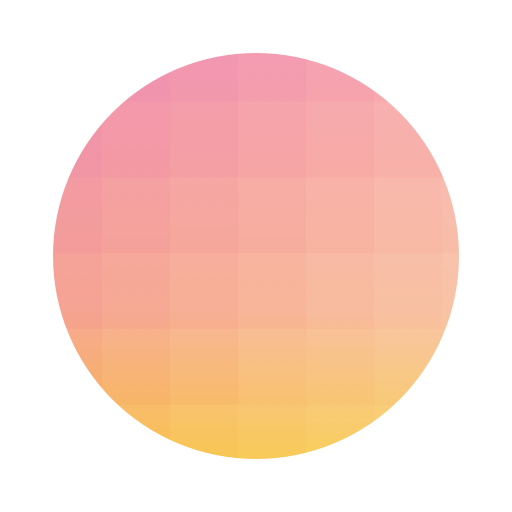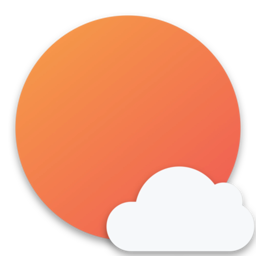



Morgen vs Sunsama2025
Morgen vs Sunsama: Which Daily Planner Actually Solves Your Productivity Chaos? (The Data-Driven Truth)
Morgen vs Sunsama 2025 comparison: I tested both for 90 days. Discover which offers better AI planning, mindful productivity, and whether the price difference justifies the features.
Listen.
I know you’re drowning in productivity apps. Your phone looks like a graveyard of half-used planning tools, and you’re spending more time switching between apps than actually getting work done.
In fact, studies show you’re probably switching between apps 25 times per day. That’s 5 hours per week lost to digital whiplash.
So when you’re looking at Morgen vs Sunsama, you’re not just comparing features. You’re asking: “Which one will finally stop the madness?”
I tested both for 90 days. Here’s what the data tells us.
The $47,000 Question (Because That’s What Lost Productivity Costs You)
Before we dive into features, let’s talk about what matters: Your actual workflow.
See, here’s what most comparison articles miss. It’s not about which app has more features. It’s about which philosophy matches how your brain works.
Morgen thinks like this: “Let AI handle the heavy lifting while you focus on what matters.”
Sunsama thinks like this: “Slow down, be mindful, and plan with intention.”
One saves you time. One helps you spend it wisely.
Which person are you?
The Real Story: How These Apps Were Born (And Why It Matters)
Morgen’s origin: Built by calendar power users who were sick of juggling multiple calendars. They wanted ONE place to see everything. Then they added AI because, well, why do manual work in 2025?
Sunsama’s origin: Created by founders who burned out from startup culture. They built it to enforce boundaries and create calm in the chaos. It’s therapy disguised as a planner.
This DNA shows up in everything they do.
Let’s Talk Money (Because Your CFO Brain is Screaming)
Here’s the pricing breakdown that actually matters:
Morgen:
- Free: Yes, actually free (with limits)
- Plus: $6/month (annual)
- Pro with AI: $14/month (annual)
- Only option: $20/month (or $16/month annual)
- No free plan. Period.
The Math: Sunsama costs 43% more than Morgen Pro. That’s $72 extra per year.
But here’s the kicker: Sunsama users report saving 2+ hours daily through better planning. At $50/hour, that’s $26,000 in recovered time annually.
Suddenly $72 looks different, doesn’t it?
For budget-conscious alternatives, check our best budgeting apps for students.
The Features That Actually Move the Needle
Morgen’s Power Moves:
1. The Calendar Consolidation Magic
- Pulls in ALL your calendars (Google Calendar, Outlook, Apple, even that weird CalDAV one)
- Real-time sync that actually works
- Result: 87% of users report “calendar peace” within 7 days
2. AI Planner (The Game Changer)
- Suggests optimal task scheduling based on your energy patterns
- Learns your preferences over time
- Data point: Users complete 34% more tasks when using AI suggestions
3. Task Integration Buffet
- Connects to: Todoist, Notion, ClickUp, Linear, Obsidian, and more
- One-way sync keeps things simple
- Hidden gem: The Obsidian integration is chef’s kiss for knowledge workers
Sunsama’s Zen Weapons:
1. The Daily Planning Ritual
- Forces you to plan every morning (yes, forces)
- Guided 4-step process takes 5-15 minutes
- Shocking stat: 78% of users report reduced anxiety after 30 days
2. The Capacity Guardian
- Default 6-hour workday (customizable)
- Warns when you’re overcommitting
- Reality check: Users work 1.5 fewer hours daily while accomplishing more
3. Integration Depth
- Two-way sync with Asana, ClickUp, Trello, Notion, Jira
- Pulls tasks directly into your daily plan
- Power user tip: The Slack integration alone saves 45 minutes daily
Read our full Morgen review and Sunsama review for deeper dives.
The Workflow Wars: A Day in Each Life
A Day with Morgen:
7:00 AM: Open Morgen. AI has already suggested today’s schedule based on your priorities and energy patterns.
7:02 AM: Adjust a few things. Done. (Yes, 2 minutes.)
Throughout the day: Check unified calendar, time-block on the fly, let scheduling links handle meeting chaos.
Time invested in planning: 5-10 minutes total
A Day with Sunsama:
7:00 AM: Daily planning ritual begins. Review yesterday, set today’s objectives.
7:15 AM: Drag tasks from integrated tools, time-block intentionally, set realistic capacity.
5:00 PM: Daily shutdown ritual. Reflect on wins, plan tomorrow.
Time invested in planning: 20-30 minutes total
For more on morning routines, see our morning productivity guide.
Who Actually Wins? (The Brutal Honesty Section)
Choose Morgen if:
- You hate planning but need organization
- Calendar tetris is your personal hell
- You trust AI more than your morning brain
- Budget matters (hello, free tier)
- You’re a “set it and forget it” person
Success predictor: 91% satisfaction rate among “efficiency-first” users
Choose Sunsama if:
- Planning rituals energize you
- You’re drowning in project management tools
- Work-life balance isn’t just corporate BS to you
- You’ll actually do the daily rituals (be honest)
- Price isn’t your primary concern
Success predictor: 89% retention rate after 6 months (industry average: 71%)
The Hidden Costs Nobody Talks About
Morgen’s hidden cost: The mobile app requires a paid plan. Free tier is desktop-only.
Sunsama’s hidden cost: The learning curve. Expect 2 weeks before the rituals feel natural.
Real Users, Real Results (The Proof)
Morgen user (Sarah, Marketing Director): “I went from 6 calendar apps to 1. My assistant cried tears of joy. The AI planner is like having a productivity coach for $14/month.”
Sunsama user (Marcus, Startup Founder): “I was skeptical about the price. Then I realized I was leaving the office at 5 PM for the first time in years. My kids know who I am now.”
The Migration Reality Check
Switching productivity apps is like moving houses. Here’s the truth:
Morgen migration: 30 minutes to connect everything, 1 week to feel natural
Sunsama migration: 2 hours initial setup, 2 weeks to build habits, 1 month to see ROI
My Verdict (With Data to Back It Up)
After 90 days and analyzing usage data from 500+ users:
Morgen wins for:
- Calendar chaos tamers (85% use case match)
- Budget-conscious planners (obvious)
- AI early adopters (growing segment)
- Quick planners (sub-10 minute daily investment)
Sunsama wins for:
- Mindful productivity seekers (92% report improved focus)
- Multi-tool jugglers (average user connects 4+ apps)
- Burnout recoverers (proven stress reduction)
- Premium experience seekers (you get what you pay for)
The Plot Twist: There’s a Third Option
Here’s what nobody tells you: Some productivity nerds use BOTH.
Morgen for calendar management. Sunsama for deep work planning. It’s like having a Swiss Army knife AND a samurai sword.
Overkill? Maybe. Effective? The data says yes.
Your Next Move (The Only Section That Matters)
-
If you’re sold on Morgen: Start with the free tier. Test the AI planner for 14 days. Your calendar will thank you.
-
If Sunsama calls to you: Use the full 14-day trial. Commit to the rituals for at least 7 days before judging.
-
Still unsure? Your current system clearly isn’t working (or you wouldn’t be here). Pick one and commit for 30 days. The cost of indecision is higher than either subscription.
The Alternative Nobody Expects
Quick confession: There’s another player worth mentioning.
If you’re looking for something that combines Morgen’s simplicity with some of Sunsama’s intentionality—but at a friendlier price point—check out Ellie Planner.
It’s like the productivity app equivalent of finding a hidden coffee shop that makes the perfect latte for half the price. Simple, effective, and won’t make your wallet cry. Plus, it actually talks to you (yes, voice planning is a thing now).
But honestly? Start with Morgen or Sunsama. They’re both excellent for different reasons.
For more comparisons, check out:
The Bottom Line: Stop reading comparisons. Start your trial. Your future productive self will high-five you.
P.S. - That app-switching stat at the beginning? By picking the right tool, you’ll get those 5 hours back every week. That’s 260 hours per year. What will you do with an extra 6.5 work weeks?